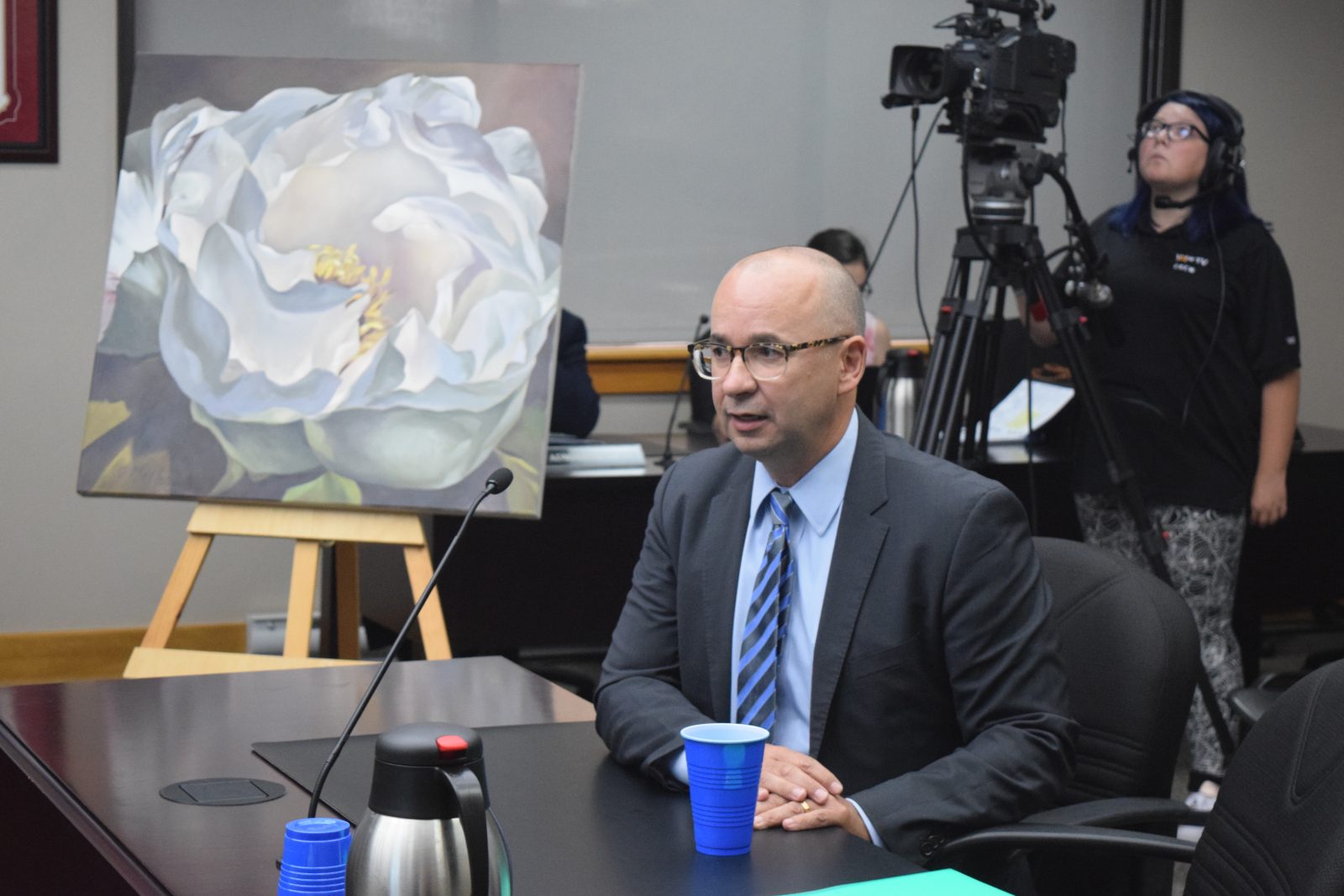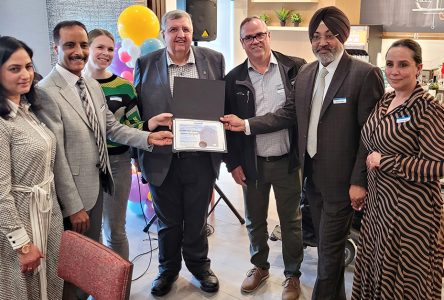CORNWALL, Ontario – Cornwall City Council heard a presentation from Immigration, Refugees and Citizenship Canada (IRCC) on the current situation of asylum seekers entering Canada at their meeting on Monday, Aug. 13, 2018.
IRCC Director General Louis Dumas explained that while the numbers of asylum seekers crossing into Canada is down from last year, that IRCC wanted to be prepared in case of a sudden spike.
“This year we really wanted to be more proactive,” said Dumas. “We wanted to prepare for a wave of people incoming between ports of entry.”
Dumas said that 50,000 asylum seekers crossed into Canada in 2017. According to the IRCC between January and June 23,434 asylum seekers have entered Canada, of that number 12,690 crossed at a recognized Canadian Border Services Agency (CBSA) crossing.
According to Dumas, all asylum seekers are finger printed, security screened and have a background check before arriving in Cornwall.
Dumas explained that the reason for asylum seekers crossing between legal ports of entry is due to the Safe Third Country rule. The Safe Third Country rule states that asylum seekers must claim asylum in the first country they arrive in, but asylum seekers in the United States can claim asylum in Canada if they do not cross at a legal port of entry.
“Claiming asylum to Canada is not a free ticket to Canada,” Dumas said. “We have an obligation to asylum seekers, but we also have a responsibility to the Canadian public.”
He said that when asylum seekers arrive they are first checked to see if they are eligible to claim asylum, if they are, then they are permitted access to healthcare and are given a work visa within 25 days. If they are eligible to claim asylum, they then must eventually make their case before the Immigration Refugee Board where their asylum status is either confirmed or rejected.
“Those who are not supposed to be here will be removed,” Dumas said. “At the end of the day, Canada is a country based on the rule of law, and asylum seekers are allowed due process.”
Last year, the majority of asylum seekers were coming to Canada from the U.S. and were Haitian in origin. Dumas said that this year, they were seeing a majority of Nigerians.
Currently IRCC is renting 544 beds at the Nav Centre, but they have also setup outside showers, a food tent and tents live in, in advance of Sept. 1, when those 544 beds will become unavailable.
Dumas said that IRCC had 1,400 beds at the border crossing in Lacolle, QC, and 600 in Montreal. Dumas implied that asylum seekers would likely be housed there before coming to Cornwall.
He went on to say, that while there were tents at the Nav Centre, that he did not foresee the need to set them up.
“It is unlikely that they (the tents) would be setup,” he said. “The numbers are on our side.”
Councillor Andre Rivette raised concerns around possible costs to the City of Cornwall if asylum seekers do come here.
“Will we be compensated for any money spent,” Rivette asked.
“I don’t believe there would be any cost to the City of Cornwall,” Dumas replied.
Dumas said that he is seeing a decline in asylum seekers and credited work that the IRCC was doing to reach out to different countries of origin and encourage those governments to do more to help stem the flow of asylum seekers.
Councillor Claude McIntosh asked how long the average asylum seeker would stay at Nav, and Dumas said that they hoped to process them within one-week, but did not rule out the possibility that some would want to stay in Cornwall to work while they waited for their case to be heard.
Mayor O’Shaughnessy expressed his concern over effective communication from IRCC, and stated that last year, he would often be given information by IRCC, but by the time he would disseminate that information, it would have already changed. Dumas said that IRCC would be providing a dedicated contact to Cornwall City Council within the week.
“It makes me proud as a Canadian to see the work you’re doing,” said Councillor Elaine MacDonald. “It is so important to human rights and to people around the world to be given a chance to make their case.”




